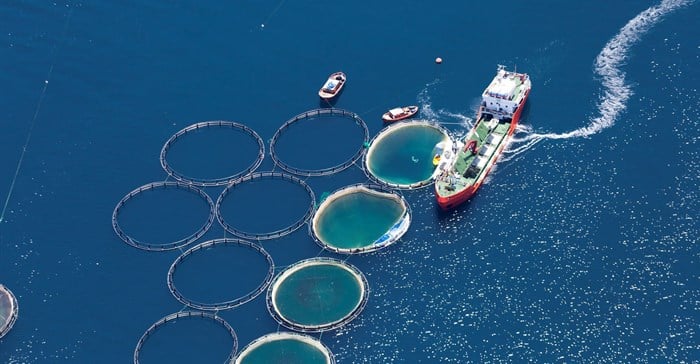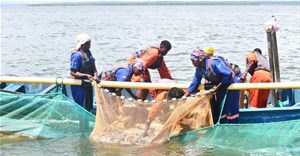EU invests €40m to bolster food security in the African, Caribbean and Pacific regions

FISH4ACP is an innovative EU-funded programme, devised with ACP and to be implemented by FAO. It will invest in value chains to stimulate inclusive growth, bolster food security and minimise impacts on the marine environment.
Ensuring sustainable development
Fisheries and aquaculture in most of the 79 ACP countries have grown significantly over the last 20 years. However, to ensure sustainable development of aquatic resources for the benefit of communities that rely on them for their livelihoods and food security, many challenges, including market access, value addition, working conditions and the risk of over-exploitation, remain to be addressed.
Over the next five years, FISH4ACP will be yielding multiple environmental, economic and social benefits for the people and the fisheries resources in Africa, the Caribbean and the Pacific, contributing to the UN's 2030 Agenda for Sustainable Development, and in particular Sustainable Development Goal 14 on conservation and sustainable use of the ocean, seas and marine resources.
FISH4ACP is set to kick off in early 2020 with value chain assessments aimed at pinpointing the main challenges in each of the value chains and helping them explore new markets, reduce waste and losses, improve fishers' working conditions and manage fish stocks at sustainable levels.
Promoting cleaner, healthy oceans
The signing took place in Oslo, at the Our Ocean 2019 conference. Representatives from governments, business, civil society and research institutions are attending this global event to promote action for a clean, healthy and productive ocean.
Welcoming the initiative, European Commissioner for Maritime Affairs and Fisheries, Karmenu Vella said: "The focus on all three aspects of sustainability - the economic, the environmental and the social - sets this programme apart. It will enable us to strike a balance between production and protection, to contribute towards fair income distribution; to promote decent working conditions, sound fisheries management and social inclusiveness; and to champion sustainable aquaculture practices."
FAO director-general, Qu Dongyu said: "We welcome this new, comprehensive value chain approach to the development of fisheries and aquaculture that takes into account all players, at all stages - from net to plate. This is an innovative approach that will boost economic returns and social equity, and reduce negative impacts on the marine environment."
"Within the ACP countries, there is a sense of urgency to boost our fisheries and aquaculture sectors because they greatly contribute to economic growth, decent jobs and food and nutrition security. We are happy to have our partners on board and launch this much-needed initiative, which will unlock the potential of fisheries and aquaculture in ACP regions," said Dr Patrick Gomes, ACP secretary-general.
New markets and thriving fish stocks
FISH4ACP will work with 10 value chains in 10 different ACP countries, aiming to maximise their economic returns and social benefits, while minimising the detrimental effects on natural habitats and marine wildlife. It will pay special attention to small-scale fisheries because of their potential to deliver economic and social benefits, particularly for women.
In Africa, the programme will support both aquaculture and fisheries value chains. They include inland and marine fisheries, involving catfish, small pelagics, oyster, shrimp and tilapia value chains from Nigeria to Zimbabwe, and from Lake Tanganyika to São Tomé and Príncipe and the continent's Atlantic shores.
In the Caribbean, FISH4ACP will concentrate on stocks of mahi-mahi and seabob shrimp in the Dominican Republic and Guyana respectively; in the Pacific, it will focus on tuna fisheries around the Marshall Islands, a sector with high potential on both European and American markets.
Key facts and figures
• Capture fishery production in ACP countries nearly doubled from 4.6 million tonnes in 1990 to 8.5 million tonnes in 2016.
• Aquaculture production in ACP countries jumped from 50,000 tonnes in 1990 to 790,000 in 2016, but still represents less than 1% of global production.
• In 12 ACP Island States, fish exports accounted for more than half the value of all food merchandise exports in 2016.
• The EU is a key market for ACP fish products. In 2016, exports to the EU accounted for 50%, 15% and 50% of exports from Africa, the Caribbean and the Pacific respectively.























